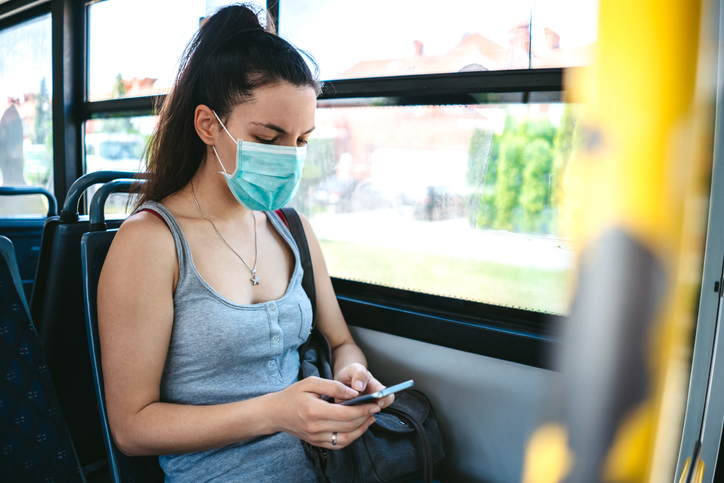COVID and chronic conditions: Stay treated and stay protected

Managing a chronic disease is a lifelong journey for many Australians.1
That’s why medical professionals are concerned by the drop in presentations to GP clinics and specialists as well as hospital emergency departments, during the COVID-19 pandemic.2,3
But the message from experts is clear for any Australian living with a chronic illness: many things in life are on hold for now, but your health shouldn’t be one of them.2
Managing and diagnosing chronic disease
Dr Mukesh Haikerwal is a Melbourne-based GP who is a former national and state President of the Australian Medical Association. He is also a former Chair of the Australian Institute of Health and Welfare, and has worked with both state and federal health committees.
“Chronic disease is something that’s critical to manage comprehensively and consistently, as people don’t have one illness, they have multiple illnesses,”1 he tells 2GB. “One in two Australians has at least one chronic disease, and around 30 per cent have at least two.”1
“You’ve got asthma, you’ve got osteoporosis, the biggest killers are still heart disease, respiratory disease, cancers, diabetes, mental illness.”1
“Early diagnosis, early intervention, and of course prevention before all of that, is where the action needs to be”,4,5 says Dr Haikerwal. “It’s been a challenge trying to convince people of the importance of early diagnosis and intervention.”
He puts it down to fear and nervousness, as to why some Australians have avoided their GPs or specialists in the past 18 months. Some people have greater fears regarding COVID-19 and its complications as opposed to their chronic condition, which they have been living with for years so it’s not so scary anymore.2,6
Some Australians, he says, were reluctant or intimidated by the new process around coming to the clinic, with screens, checking in and strict protocols. Worryingly, it wasn’t just the older demographic, but younger people too putting off important health appointments or check-ups.7
Staying on top of your health
According to the Australian Department of Health people living with a chronic disease can take an active role in managing their condition by keeping and prioritising the regular visits to their GP or specialist, having a healthy lifestyle, taking prescribed medicines and following a management plan.5
Dr Haikerwal, like many in his field, is concerned by the drop in participation in national screening programs for many cancers and other chronic conditions.8
“The message is very clear: get screening done, get tested, and don’t delay it,” says Dr Haikerwal. “I think it’s important to stay on top of your health and ensure you’re proactive in protecting yourself for the long term, even in the face of this other threat.”2,6,8
“Anyone aged 44 to 49 is entitled to a health assessment, everyone 75 or over gets one if they want one, and anyone who is Aboriginal or Torres Strait Islander is entitled to one every year from age 18,”9–11 explains Dr Haikerwal.
“They are all really important things that are there, that people aren’t aware about. And everybody else should consider it,” Dr Haikerwal adds.
Osteoporosis
According to the Australian Institute of Health and Welfare, osteoporosis is one of the top 10 major chronic condition groups.1
It’s estimated that nearly one million Australians have osteoporosis, based on data from the Australian Bureau of Statistics (ABS) 2017–18 National Health Survey.12
“With osteoporosis you end up with severe brittle bones,”13 explains Dr Haikerwal. “It’s very common in women heading towards menopause, and obviously post-menopause, also men do get it too.”14
To check your bone density, your doctor will refer you to get a bone density scan (sometimes referred to as a DEXA scan). It’s a painless procedure that takes between 10–15 minutes.15
Australians may be eligible for a Medicare rebate, if they are aged 70 years or over, have had a fracture from a minor incident, long-term users of corticosteroids or have other diseases and conditions that are risk factors for osteoporosis.15
“Getting in early is the best thing you can do, in regard to your bone health,”16 says Dr Haikerwal.
Disease education message by Amgen Australia. Amgen Australia, Level 7, 123 Epping Road, North Ryde, NSW 2113. ABN 31 051 057 428. Phone: 1800 646 998 www.amgen.com.au. AU-15710. Approved July 2021.
The advice given on this page is general. Please consult your doctor about what is best for you personally.
Products promoted through and advertised on or around this page are not endorsed by Dr Mukesh Haikerwal. He did not receive payment for his contribution.















